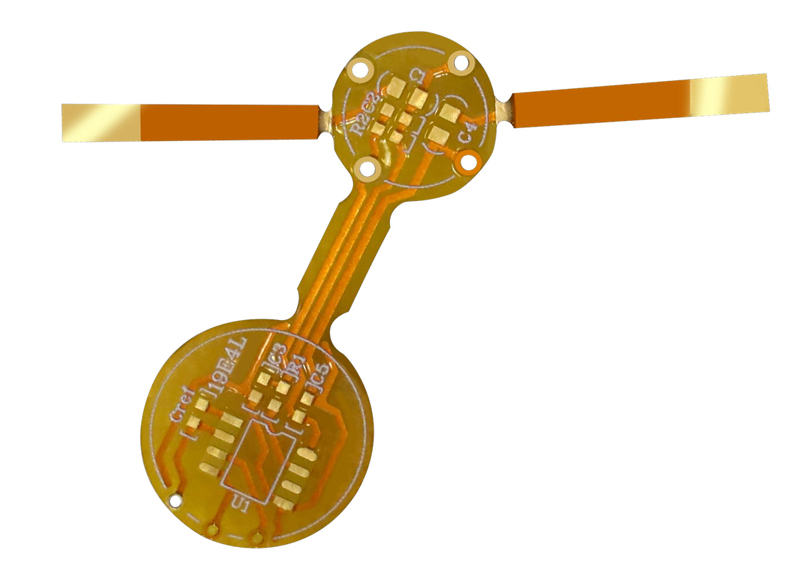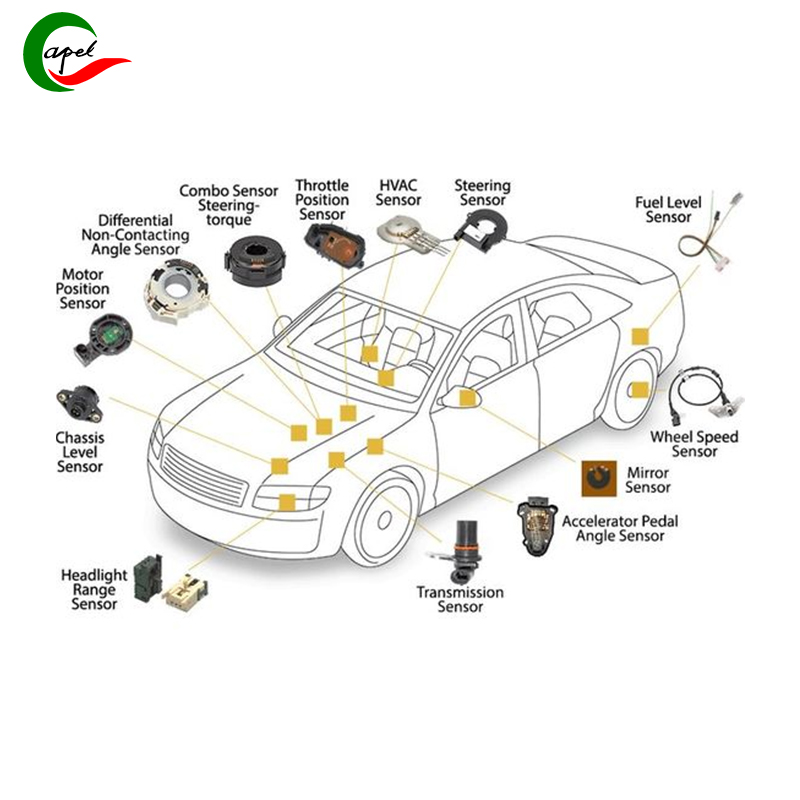1 layer flex circuits board enig high-TG PCB for automotive sensor-Case
| Technical requirements | ||||||
| Product type | Single-sided Flexible Circuit Board | |||||
| Number of layer | 1 Layer | |||||
| Line width and line spacing |
0.2/0.25MM | |||||
| Board thickness | 0.13MM | |||||
| Film Thickness | 50UM | |||||
| Hole copper thickness |
1OZ | |||||
| Surface Treatment | ENIG 2-3uin | |||||
| Franchise requirements | High temperature 135 degrees, no carbonization for 200 hours |
|||||
| Surface requirements | 48-hour salt spray test | |||||
| Characteristic | Corrosion-resistant High-temperature-resistant |
|||||
| Application Vehicle | Volkswagen | |||||
| Application | Automotive Sensor | |||||


Case Analysis--Capel with 15 years of professional technical experience
Advanced Circuits Flex Pcb provide safe and reliable solutions for the Automotive Industry.
How do Capel's high-precision Single Layer Fpc Pcb provide innovative technical support for Automotive equipment such as Volkswagen Sensor?
Launch of advanced circuit flexible PCB: providing safe and reliable solutions for the automotive industry
The automotive industry requires highly advanced and reliable electronic solutions to keep vehicles running smoothly and efficiently. Advanced Circuits Flex PCB understands this need and has introduced a cutting-edge product specifically designed for automotive applications - single-sided Flex PCB.
Our single-sided flex PCBs stand out for reliability, durability and functionality. With its single-layer configuration, it provides a simple and efficient solution for automotive sensor systems. The line width and line spacing of 0.2/0.25MM make it very suitable for high-density circuits, ensuring accurate signal transmission and minimizing signal interference.
One of the key features of our flexible PCBs is their board thickness of 0.13 mm, making them incredibly flexible and adaptable, even to the most complex automotive designs. Additionally, the 50UM film thickness ensures excellent insulation and protection against environmental factors such as moisture and dust.
In order to provide the best conductivity and durability, our single-sided flex PCB has a hole copper thickness of 1OZ, which enables efficient heat dissipation and prevents the risk of overheating. In addition, the surface treatment of ENIG 2-3uin ensures corrosion resistance, making it ideal for automotive applications.
Our flexible PCBs undergo rigorous testing to meet the demanding requirements of the automotive industry. It has been salt spray tested for 48 hours to ensure it is resistant to harsh weather conditions, making it extremely durable and reliable.
In addition, our single-sided flex PCB has excellent thermal stability. It can withstand temperatures of up to 135 degrees for 200 hours without carbonization, making it ideal for the harsh conditions inside a Volkswagen.
Our flexible PCBs have advanced features such as corrosion resistance and high temperature resistance, making them perfect for automotive sensor systems. It operates efficiently under extreme conditions, ensuring accurate and reliable operation of critical automotive components.
With 15 years of experience in Advanced Circuits, we understand the importance of providing safe and reliable solutions to the automotive industry. Our single-sided flex PCBs are designed to meet and exceed the high standards set by the automotive industry, ensuring best-in-class performance and functionality.
With advanced flexible PCB technology, we aim to change the automotive industry by providing state-of-the-art electronic solutions. By combining advanced engineering expertise with cutting-edge manufacturing techniques, we strive to deliver products that revolutionize the automotive industry.
Capel's Advanced Circuits Flex Pcb is the ultimate choice for safe and reliable electronic solutions in the automotive industry. With their advanced features, including corrosion resistance, high temperature resistance, and superior durability, our single-sided flexible PCBs provide a solid foundation for automotive sensor systems. Experience the future of automotive electronics through advanced circuits.
Post time: Aug-10-2023
Back






